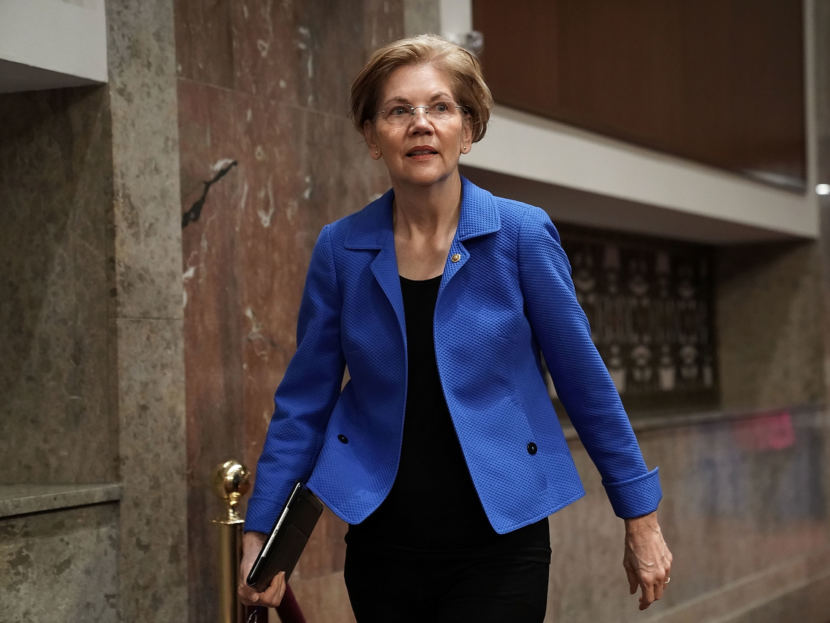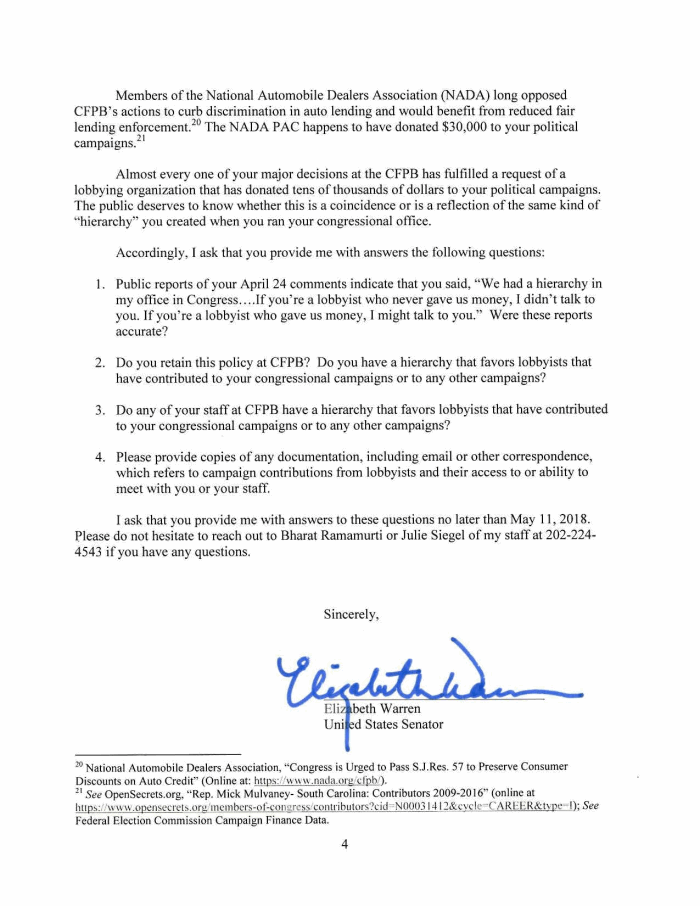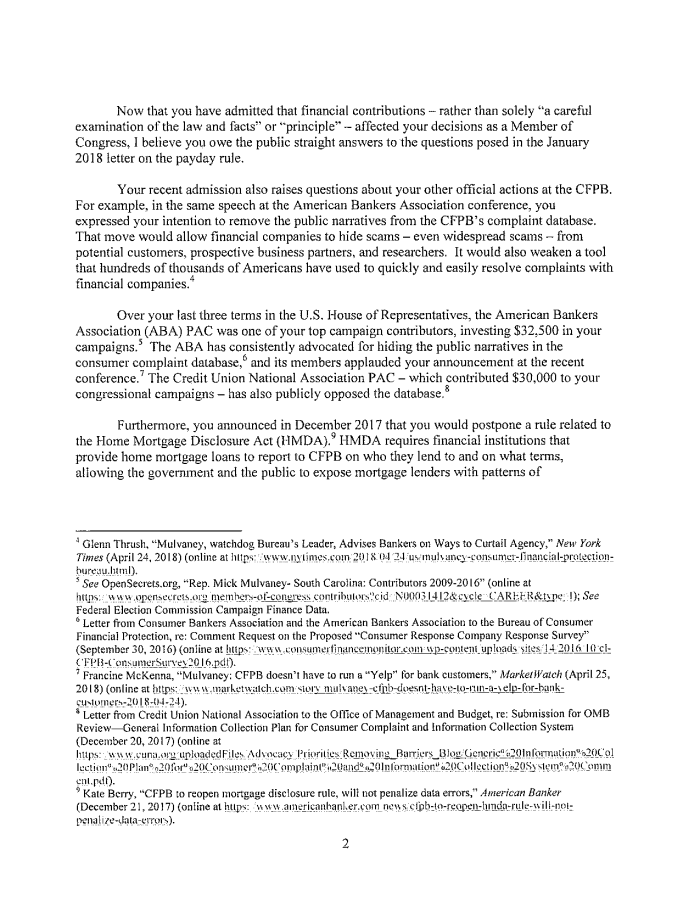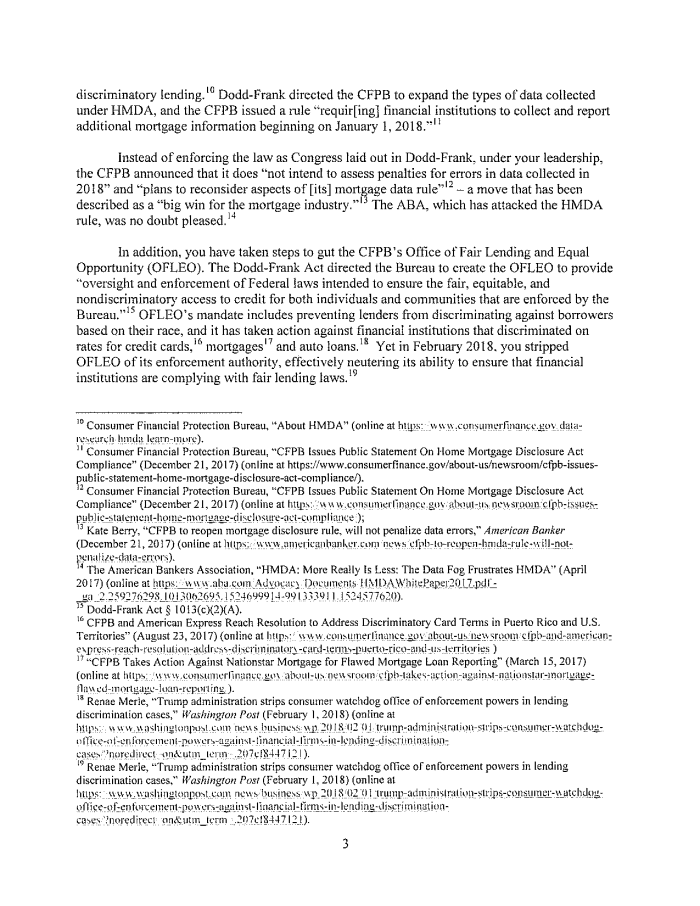
Sen. Elizabeth Warren sent a letter to the Trump administration’s top consumer protection official late Thursday asking him whether he is doing the bidding of the industries he is supposed to be policing.
The move was in response to remarks about lobbyists made earlier this week by the acting head of the Consumer Financial Protection Bureau, Mick Mulvaney.
Earlier this week, Mulvaney told a group of bankers and lobbyists that when he was a Republican congressman he would only talk to lobbyists who gave money to his election campaign.
Those remarks are drawing sharp criticism from Democrats, who have also been critical of Mulvaney’s efforts to pull back on regulation at the consumer protection bureau. Mulvaney has dropped a predatory lending lawsuit and has said that he is reconsidering a payday lending rule. He has also said he may shut down public access to a popular database customers use to file complaints against financial firms.
Warren told Mulvaney in a letter:
“Almost every one of your major decisions at the CFPB has fulfilled a request of a lobbying organization that has donated tens of thousands of dollars to your political campaigns.”
In another letter, Warren is asking the CFPB’s ethics office about excluding Mulvaney from decisions involving companies that gave money to his campaigns.
Mulvaney has said in the past that campaign contributions do not pose a conflict of interest for him. The CFPB press office says the agency is reviewing the letters but has no further comment at this time.
Mulvaney’s remarks came during a speech he gave at an American Bankers Association conference on Tuesday. In that speech, Mulvaney also said he always spoke with visitors to his office who came from his home district even if they didn’t donate money. Here’s what he said:
“We had a hierarchy in my office, in Congress. If you were a lobbyist who never gave us money, I didn’t talk to you. If you were a lobbyist who gave us money, I might talk to you. If you came from back home and sat in my lobby, I talk to you without exception, regardless of the financial contributions.”
It’s the first half of that “hierarchy” that has become a lightning rod for Mulvaney’s critics. The ranking Democrat on the Senate Banking Committee, Sen. Sherrod Brown of Ohio, called for Mulvaney to resign, saying Mulvaney acknowledged “the kind of ‘pay to play’ that understandably makes Americans furious with Washington, DC.”
While Mulvaney isn’t offering further comment now, a CFPB spokesman told The New York Times that Mulvaney was “making the point that hearing from people back home is vital to our democratic process and the most important thing our representatives can do. It’s more important than lobbyists and it’s more important than money.”
9(MDEwMjQ0ODM1MDEzNDk4MTEzNjU3NTRhYg004))


